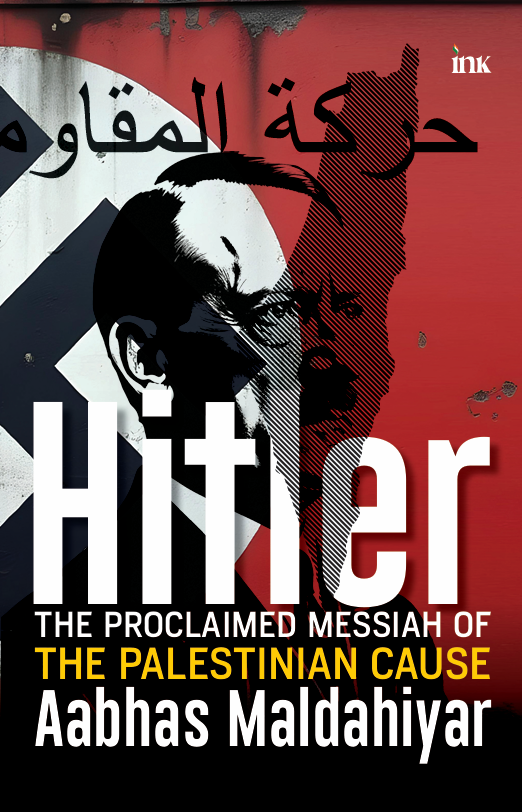
In Hitler: The Proclaimed Messiah of the Palestinian Cause
Aabhas Maldhiyar explores one of the most disturbing and little-discussed nexuses of contemporary history in Hitler: The Proclamated Messiah of the Palestinian Cause: the political and ideological ties between Nazi Germany and Islamist leaders in the Arab world.
Maldhiyar makes the case that Adolf Hitler was not only viewed as a European dictator but also as a messianic figure with anti-colonial and anti-Zionist goals in some Arab circles, drawing on declassified archives and underappreciated historical documents. A major figure
in this story is Haj Amin al-Husseini, the Grand Mufti of Jerusalem, who actively supported the Nazi government, disseminated its propaganda, and pushed for the Holocaust to spread throughout the Middle East.
The book additionally explores at how Nazi Germany was inspired by the idea of jihad, seeing it as an effective means of mass mobilisation that influenced ideological currents after the war and hit a chord with Islamist movements.
This work is important not only for its scholarship but also for its courage to face hard realities that have frequently been softened or overlooked in popular historical narratives. It’s simple and friendly writing style is both thought-provoking and enlightening, compelling
readers to reconsider World War II's effects considering the current Middle East conflicts. This book is essential reading for anyone who wants to understand the real ideological roots of present-day radicalism, Israel's historical legitimacy, and the extremely unsettling alliances that predicted the current geopolitical crisis.
Aabhas Maldhiyar is an Indian author and architect whose works explore history, politics, and culture. Known for books such as Shades of Saffron, Babur: The Quest for Hinduism, and Narendra Modi: The Icon of India’s Transformation, he combines archival research with
accessible writing to challenge mainstream historical narratives. Stylistically, Hitler: The Proclaimed Messiah of the Palestinian Cause is far from a dry academic monograph. Aabhas Maldhiyar writes with a rare combination of intellectual sharpness and emotional depth. His prose carries both the rigor of archival research and the resonance of lived conviction, making the book accessible without losing its seriousness.
What sets this work apart is the author’s unflinching moral voice. The lyrical dedication to the victims of Hamas terrorism, his invocation of Jewish resilience, and his framing of Bharat’s responsibility toward historical truth elevate the narrative beyond scholarship. Maldhiyar is not content with presenting facts alone—he positions history as an ethical responsibility.

In conclusion, this stands out as one of the most explosive works of our time. Maldhiyar has gone beyond writing a book—he has illuminated some of the darkest corners of 20th-century history, restoring a sense of moral clarity that is seldom found in contemporary scholarship.
Reviewed By Deepali Sharma, Assistant professor


















